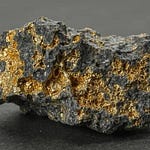Have you ever listened to a true crime podcast, or watched a true crime documentary, and been riveted as you try to understand the why behind a heinous crime? What would make another person snap?
Or think of villain origin stories—The Joker, Star Wars Episodes I-III, Cruella, etc. We are fascinated by them because we are trying to understand what drives a person to behave a certain way. How does a person begin one way, then wind up adhering to a different moral compass than the average bear?
It’s all about motivation.
Motivation is what drives our character—and, therefore, our story.
Because people’s behaviors are the result of feelings and emotions that stem from motivation. Without a character who is motivated by something, there is no story.
Okay, but what do I really mean by motivation? Yes, you’ve likely heard me say that a character must have a desire that they are pursuing over the course of a book, but when I think of the word motivation I’m looking at something deeper. While a desire might be more external, I encourage you to think of motivation as something more primal that is pushing your character to take the actions they take.
How do we figure out their true motivation? We ask “why” until we tap into the core of the character.
Let’s say, for example, that you’re writing a story about a character who wants to be the first female astronaut to land on the moon.
(External) Desire: To be the first female astronaut to land on the moon
Why does she want this? Why does this matter to her?
Because it’s never been done before and she wants to experience it.
Why?
Because she wants to prove herself as capable.
Why?
Because she’s seeking validation from her astronomer father who always wished she were a boy instead.
Aha, there it is. She is seeking love, validation, acceptance, belonging. These are deep motivations that stem from a character’s backstory and are intimately tied to their values. Getting to the moon is what might be driving the plot forward, but everything that this character does is motivated by her desire to be accepted and loved.
A few months ago, my therapist sister, who often shares different personality quizzes and psychology theories with me, shared something with me called the Seven Primal Questions. If you’re unfamiliar with this theory, it’s a concept created by Mike Foster, based on the premise that each person has one primal question that they are subconsciously getting answered through their interactions with the world. And that question is based on a deep, childhood-formed, need that drives our behavior.
As his theory goes, when your primal question is being answered with a “Yes,” you feel content and happy and at peace. And when it’s answered with a “No,” whether purposely or consciously or not, we are faced with the “scramble.” The “scramble” is our way of trying to get that primal question answered with a “yes,” though we don’t often go about getting that “yes” in the healthiest ways.
Here's a rundown of the seven primal questions:
1. Am I Safe?
People with this primal question are seeking physical and emotional safety. They often want to control their future and, when they’re in their scramble, they live on high alert with stress and anxiety.
2. Am I Secure?
People with this primal question are providers and partners, who prioritize relationship capital and finances. They deeply crave security. When they’re in their scramble, they fret over money and resources and their relationships.
3. Am I Loved?
People with this primal question crave being loved. They have a strong fear of being dismissed, unheard, and unseen. And when they are in their scramble, they can wind up being people-pleasers, over-givers, and engage in codependent behaviors.
4. Am I Wanted?
People with this primal question crave being wanted…they fear being excluded, replaced, shunned. These are the social butterflies who rely on validation from others. When they’re in their scramble, they can lose themselves in the need to feel wanted.
5. Am I Successful?
People with this primal question are problem-solvers. They want to be seen as successful in the eyes of the world. When they are in their scramble, they can sometimes veer towards workaholism.
6. Am I Good Enough?
People with this primal question want to be seen by others as good. Or good at things. They hate criticism or being negatively thought of. And when they are in their scramble, they can see themselves as a victim and/or shut down.
7. Do I Have a Purpose?
People with this primal question want to live a full life of meaning, and feel that a purposeless existence is the worst. When they are in their scramble, they can get caught up in finding the “right” path, which makes them miss out on the good.
If you look at these questions, they all point back to a very essential, deep need that people have. Love, purpose, safety, security, esteem, value. These are the real drivers, the true motivators.
Let’s look back at our female astronaut and her desire to land on the moon. I’d guess that her primal question is Am I Good Enough? Or Am I Successful? But it could be whatever the author chose to make it given her childhood wounds and how she internalizes and then deals with them.
One way of looking at this theory that I like is the idea that all of our behaviors (or all of our characters’ behaviors) can be the result of unmet needs.
Unmet needs -> Feelings and emotions -> Behaviors
So, if our astronaut protagonist needs to feel successful, let’s say, and she bombs her interview at NASA, she’s going to have big feelings about this that will inform what she does next as she tries to get her need of being successful met. Maybe she follows her interviewer to a pub where she tries to show them a paper she wrote about thermophysics. Or maybe she calls in a favor from her estranged ex-fiance and asks them to put in a good word for her. Maybe she lies to her father and tells him she is certain she’ll get the job. Maybe she decides she must do something bigger to prove herself capable of a place at NASA and begins working on some project.
Whatever it is, when we understand a character’s true motivation, it’s not only easier to figure out—or come up with ideas about—what she might actually do when faced with an obstacle (which is, after all how story works), but it’s also how we stay connected to her.
Motivation is the engine that’s driving our character to act. And without it the story will not work.
So, what’s truly motivating your character? What unmet needs do they have as a result of some of your plot’s obstacles? What childhood event (wound, backstory, etc.) cemented their motivating value?
I encourage you to play around with these questions, get to the core of your character by asking why they want what they want.
Until next week!
Happy Writing!
Karyn














Share this post